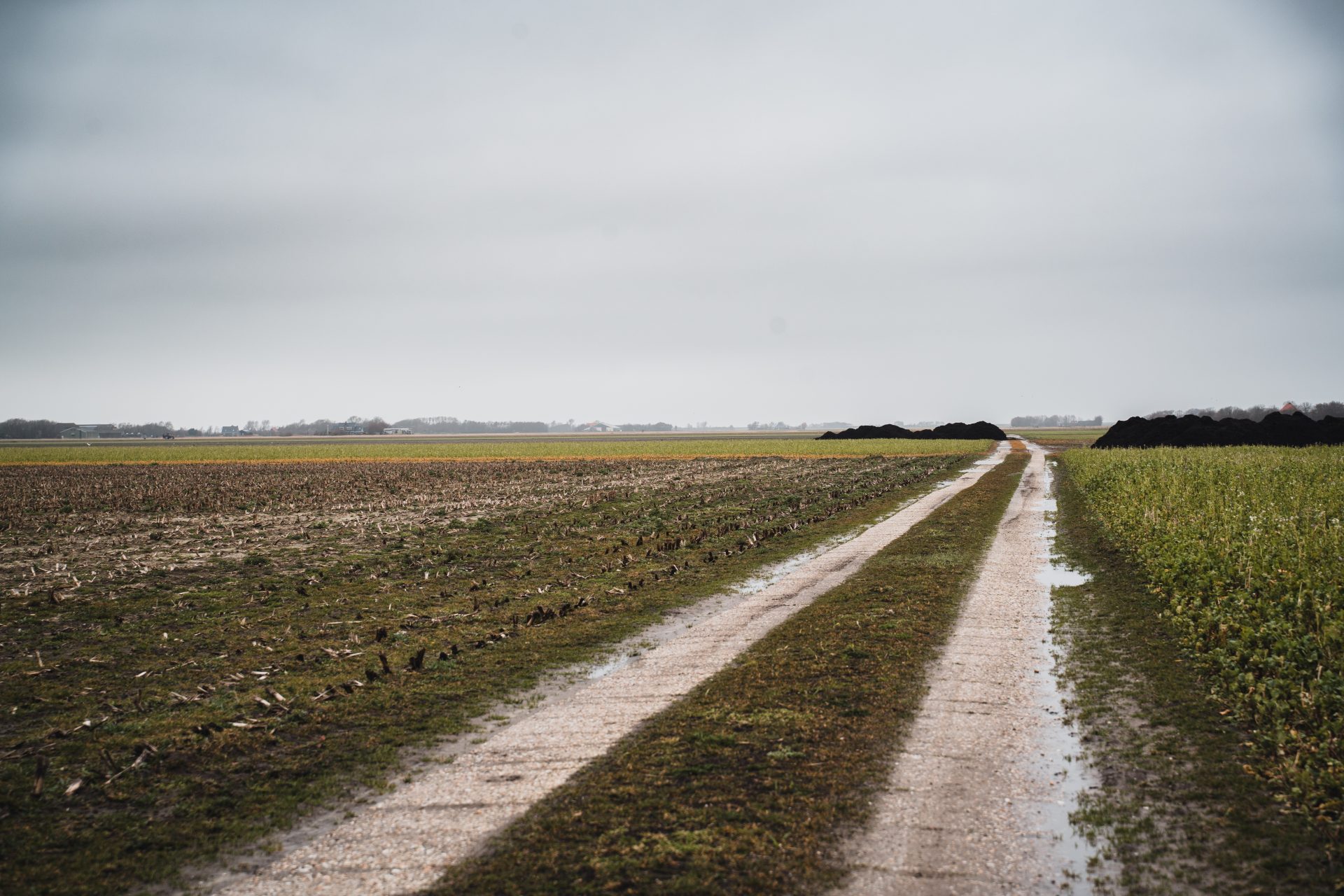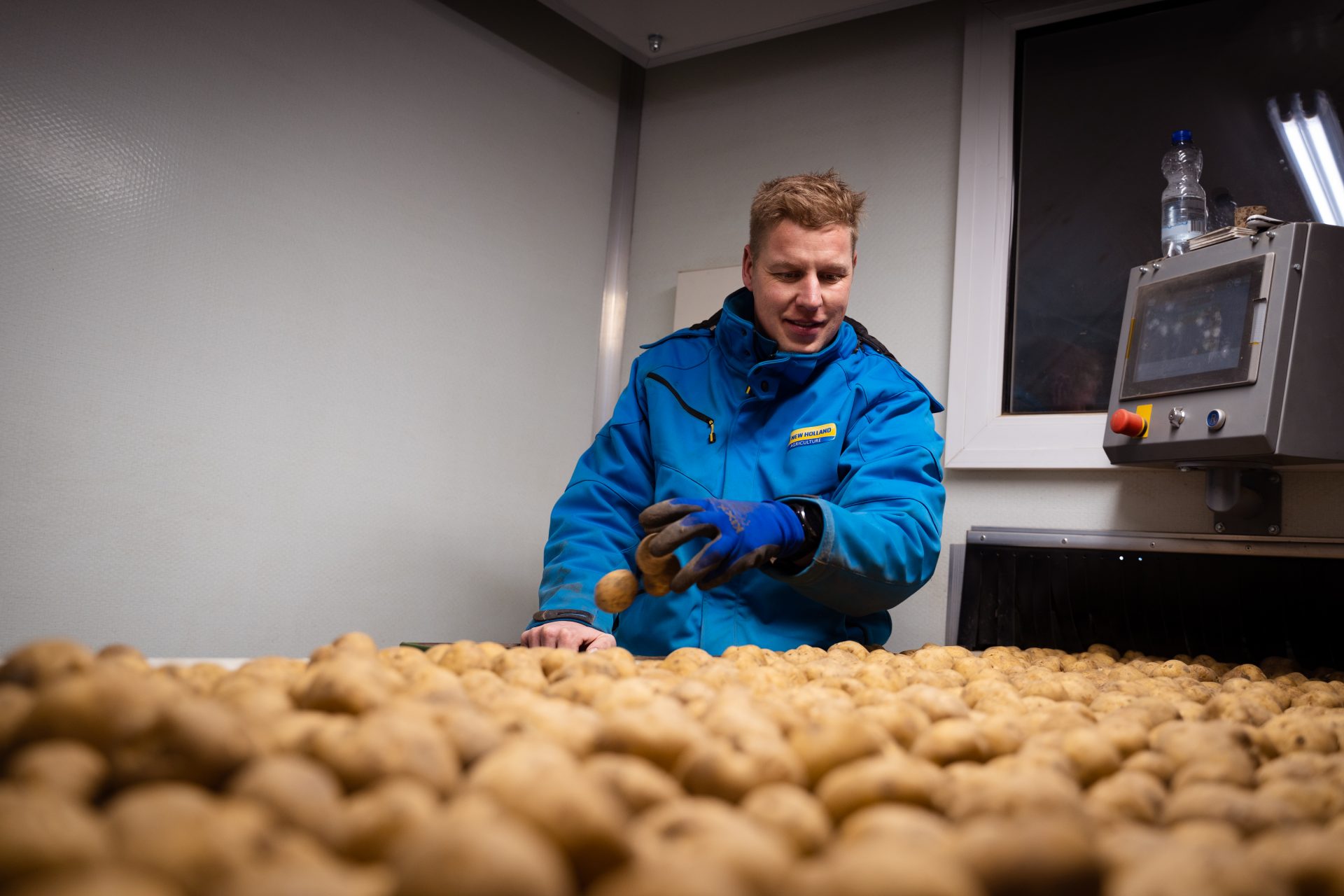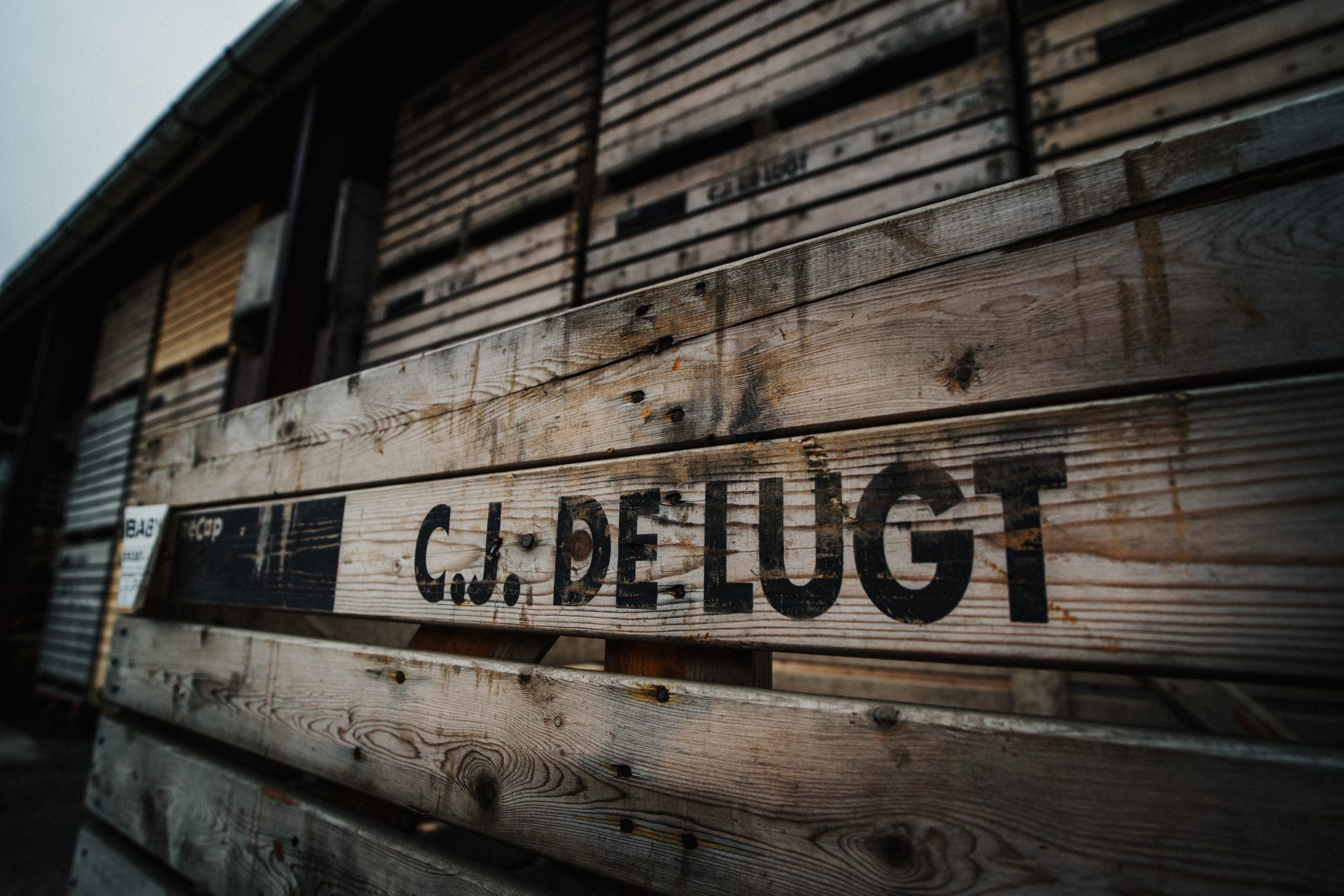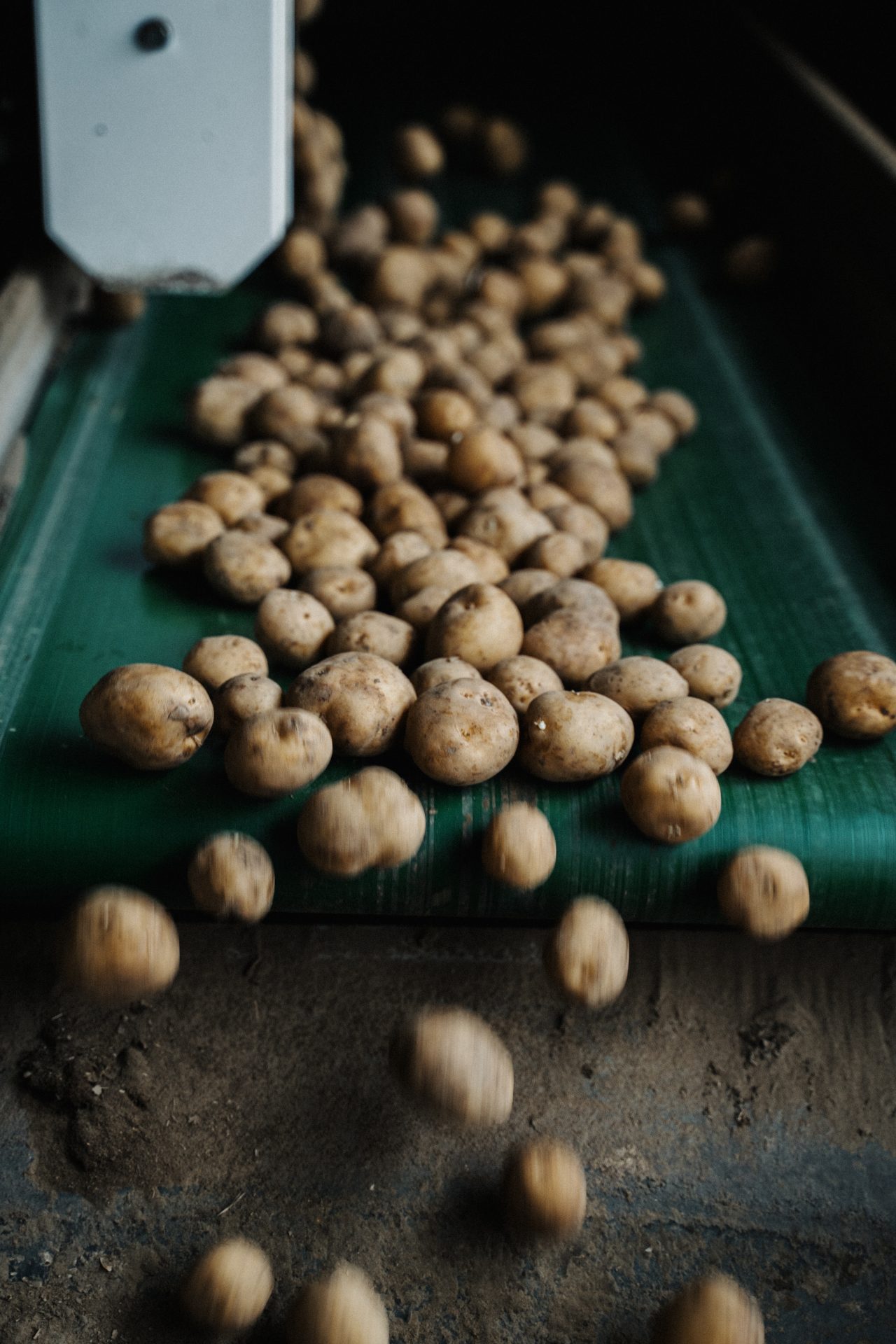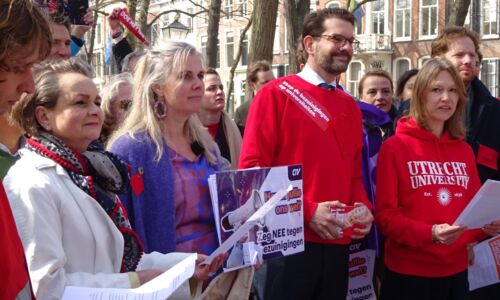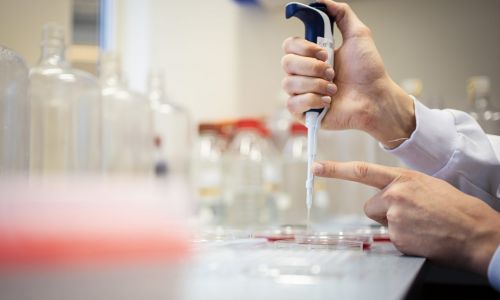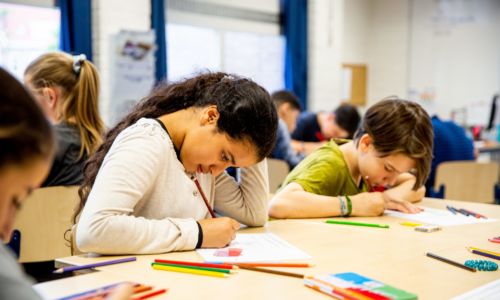Why Radboud University owns land on Texel
-
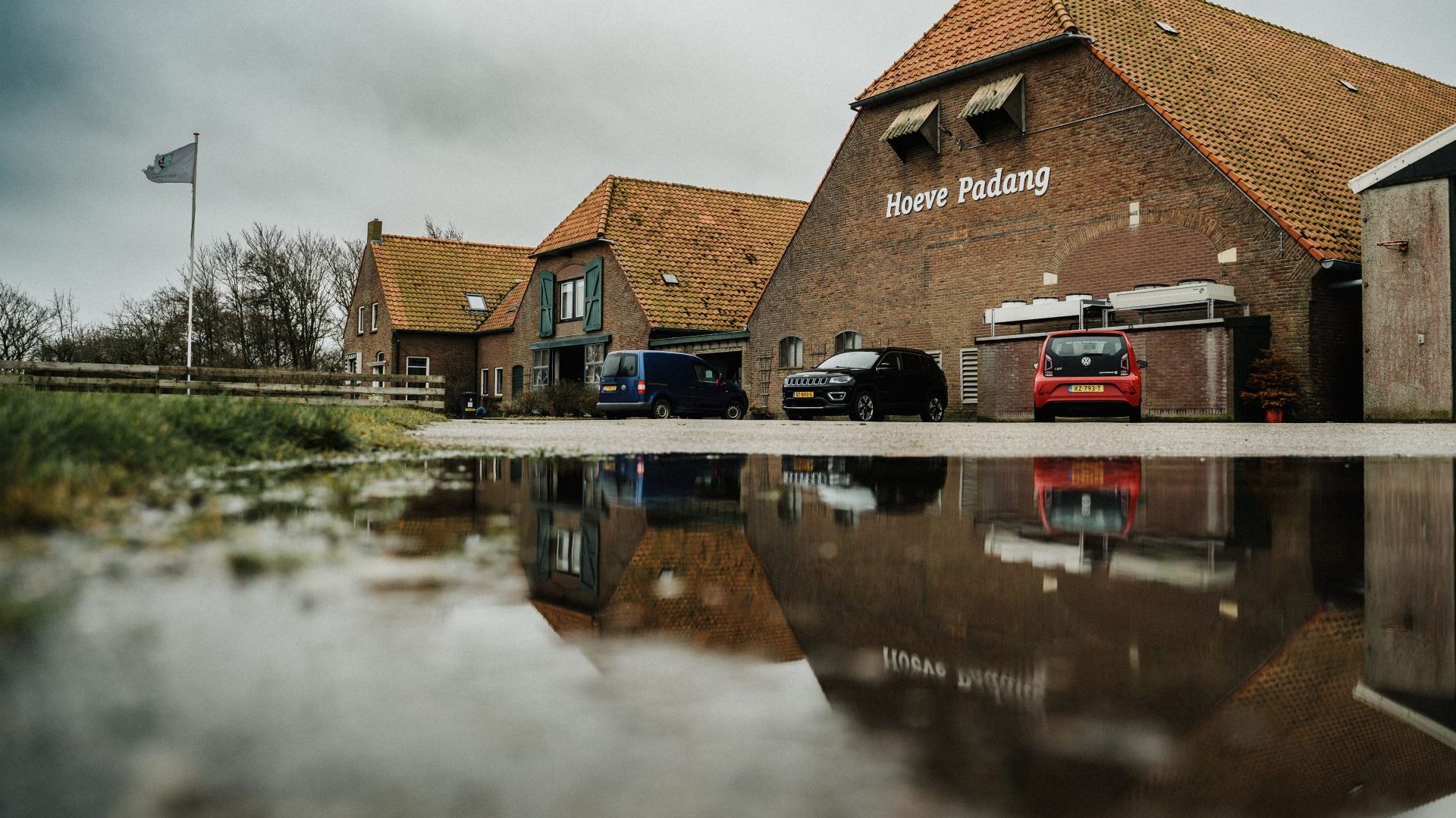 Landbouwbedrijf De Lugt op Texel. Foto: Johannes Fiebig
Landbouwbedrijf De Lugt op Texel. Foto: Johannes Fiebig
For four generations, the De Lugt family on Texel has been farming land owned by the Reinier Post Foundation. This foundation’s assets, worth tens of millions, were raised thanks to a major fundraising campaign for the establishment of the Nijmegen Catholic University 100 years ago. But where does this money go?
New Vox
This story is part of the new Vox, which can be found on campus this week. In this Vox we dive into the history of the 100-years old university and look towards its future.
The weather on Texel is horrible. On the largest Wadden Island, the wind is blowing strong, and the rain is coming down hard on this late March day. Farmer Bart de Lugt isn’t impressed, he says, standing amidst the vast farmland. ‘It does tend to get windy around here.’
There are large puddles of water on the fields. Winter crops are growing on some fields, while others seem to have remained untilled after the harvest.
Later this year, beet and potatoes will be growing here, says De Lugt. He and his cousin Matthijs will be working the land with their tractors. Together, they are the fourth generation of the De Lugt agricultural company. After harvesting, the seed potatoes are shipped all over the world, as far away as Syria and Brazil.
Old Catholic money
Sixty-six of the Texel farm’s 270 hectares of arable land are owned by the Reinier Post Foundation, a foundation with old Catholic money managed by Radboud University and Radboud university medical center supervisors. The money continues to fund a lot of activities of both institutions.
The foundation’s assets have a long history, dating back to the early 20th century. In 1905, Roman Catholic priests and bishops started holding collections with the aim of establishing a Catholic university. The assets, which included donations and bequests, were collected in the St Radboud Foundation. Following a major fundraising campaign in 1921, the assets totalled three million guilders. Two years later, the bishops used this money to establish the Catholic University Nijmegen, now known as Radboud University.
From its inception until 1960, the university received subsidies from the municipality of Nijmegen. This was later replaced by a state subsidy. For a long time, people continued to donate part of their property or inheritance to the foundation. ‘We still have a few bequests that are spent very specifically,’ says current secretary Ingrid van Deelen.
Reinier Post Foundation
In 1972, the university’s supervisors decided to transfer some of the assets to a separate foundation, the Reinier Post Foundation (SRP), named after priest, Professor of Medieval History and former Rector Reinier Post (1894-1968). The statutes state that the foundation funds identity-related activities, such as the University Chaplaincy.
The foundation’s assest are approximately €59 million
In the autumn of 2020, Radboud University and Radboud university medical center lost their Catholic predicate after a protracted dispute with the Dutch bishops. This also affects the Reinier Post Foundation. Until then, the Board of the SRP consisted of the supervisors of the Stichging Katholieke Universiteit – the joint supervisory body of the university and the hospital – who were appointed by the bishops. Since 2021, the Board has consisted of an independent chairman and representatives of both supervisory boards.
The current SRP chairwoman is Lilian Gonçalves-Ho Kang You. The Surinamese lawyer and human rights activist was previously a member of the Board of the Stichting Katholieke Universiteit for 12 years, and in that capacity also acted as a director of the Reinier Post Foundation. She informs us that the foundation’s assets were approximately €59 million at the beginning of 2023. But this amount fluctuates, says Gonçalves, as some 80% of the assets are invested in funds whose value can go up or down from day to day.
No more Shell
The archives of the Reinier Post Foundation, which Vox was allowed to peruse at the Catholic Documentation Centre, reveal that in the 1970s and 1980s, the foundation held shares in Unilever, Dordtsche Olie – later Shell – and Koninklijke Hoogovens, a forerunner of Tata Steel.
The SRP does not invest in weapons
That is no longer the case, Gonçalves explains. The foundation’s money is managed by asset manager Aegon Asset Management. ‘They have an investment policy that is aligned with SRP’s values.’ The investments are in line with the United Nations’ corporate responsibility goals and the Dutch climate agreement, Gonçalves stresses. Nor does the SRP invest in weapons. ‘Our investments are diversified and therefore less risky.’
Different assets
Another part of the assets is in the paintings hanging in Huize Heyendael, the Aula, and the reading room of the University Library. And then there are the estates. All in all, the Reinier Post Foundation owns some 326 hectares of land across the Netherlands – in addition to Texel, in Alphen aan den Rijn, the Beemster, Brummen, Den Helder, Oss, Ravenstein and Schipluiden, among others.
There is regular contact with the farmers who have their farms on this land, Gonçalves says. ‘Because farming is becoming increasingly complicated and is a fairly intensive asset, we sometimes think about selling some of the land. We do so occasionally when the opportunity arises. But during the financial crisis [of 2008, Eds.] we were really glad we hadn’t, because there was a dip in the assets.’
Last battle
In the coffee room on the Texel farm, we are joined by Bart’s father, Dirk de Lugt. Dirk remembers how the farmland came into the possession of the Reinier Post Foundation. ‘My grandfather, C.J. de Lugt, was the son of a contractor in The Hague,’ he says. ‘During the 1920s economic crisis, instead of taking over his father’s contracting business, he moved to Texel to start a new career as a potato farmer.’
World War II passed relatively peacefully on Texel. The sting was in the tail: In April 1945, Georgian troops rebelled against the Germans on the island, in what came to be known as the last battle of the war. From Den Helder, the Germans bombed the area around the Texel airfield to prevent the mutinous soldiers from escaping.
Several farms were hit, Dirk says, including Maurick farm, close to Dirk’s grandfather’s farm. The farmer at the time did not manage to rebuild his farm after the war. This was when the university must have bought the land, as an investment. ‘They asked my grandfather, who had a large potato business by then, to lease the farmland. And this is what we do to this day with our family business.’
Visitors
The journalists visiting the De Lugt family today are not the first to have come to Texel on behalf of Nijmegen university. When Dirk and his brother Cor were little, Dirk recalls, their parents were visited every year by a steward and a Catholic clergyman from the university, and later by representatives of the SRP. ‘The priest wore a collar,’ says Dirk. ‘They didn’t mind us being Protestants. They drove around the farm and had a quick look at the land from the car. Afterwards, they had some food, and then they went back to Nijmegen.’
‘They didn’t mind us being Protestants’
Later, when Dirk and Cor were owners themselves, they were the ones to host the annual visits. ‘We told them about the latest developments in the company. That we no longer ploughed the fields, for example. This is due to the Texel farmland, which is naturally very dry. We only lift the topsoil layer with a machine, which is better for soil life and makes crops more resilient to longer periods of drought. The members of the Reinier Post Foundation were always very interested in our news, and they also enjoyed seeing our sons take over the business.’
Leasing
Farmers rent the land through the leasing principle: the more the land yields, the higher the price. The idea behind it is that the land produces a high return for the owner, but also a good income for the farmer. ‘We mainly look at the long term,’ Dirk explains. ‘Because we have the trust of the foundation, we can invest in our business.’
The money raised by the lease flows back to the SRP. ‘Our policy so far has always been that we don’t spend all of the assets, to avoid having nothing left one day,’ says Gonçalves. ‘In recent years, we’ve managed to fund the projects from our returns, keeping the assets fairly constant,’ adds secretary Ingrid van Deelen.
Catholic character
These days, the aim of the SRP is to contribute to activities of the university or Radboud university medical center that strengthen their image, identity or position, Gonçalves explains. These include projects with a distinctly Catholic character, such as scholarships for foreign theology students, a biography of Titus Brandsma, a PhD dissertation on the Catholic identity of Radboud University, and the current identity programme.
The University Chaplaincy also receives funding from the SRP, even though Radboud University no longer has a Catholic designation. ‘We’ve agreed with the bishops that as long as the SRP exists, we will continue to fund the University Chaplaincy,’ says Gonçalves. ‘Up to a certain amount of course; nothing is unlimited.’
Healthy Data Programme
It is striking that in recent years, the SRP has also funded projects without a clear link to the Catholic Church or identity. Take the Radboud Excellence Initiative or the Healthy Brain Study, a large-scale research study into the brains of people in their thirties from Nijmegen and the surrounding area. Over a five-year period, between 2018 and 2023, the study received some €8 million in funding, 56% of which came from the Reinier Post Foundation.
A new large-scale initiative that received funding is the Healthy Data Programme, which consists of several projects aimed at improving the data infrastructure on campus so that health data are stored better and available for reuse. Spread over a period of six years, researchers and various support services of Radboud University and Radboud university medical center will receive a grant of €21 million for this purpose, 16 million of which will come from the SRP.
Pitch
Not just any researcher can apply for a grant from the Reinier Post Foundation, says Lilian Gonçalves. There is no set script on how to write an application. ‘Depending on who applied, the projects are submitted to the Radboud University Executive Board or to Radboud university medical center Executive Board,’ she says. If they aren’t confident about the value of the project for both the medical center and the university, the pitch will not reach the Foundation’s desk. ‘This is based on a thorough investigation,’ says Gonçalves. ‘We almost always take the boards’ advice.’
Subsidy applications to Reinier Post are therefore different from those of regular research funding agencies, explains Alain van Gool (Radboud university medical center). He is project manager of the Healthy Data Programme, together with Berber Pas (Radboud University). ‘Application rounds to the Dutch Research Council (NWO) or European grants are large-scale and competitive: you have to describe in detail what you plan to do over the next five years. An application to the SRP is more like a pitch for a start-up.’ It is much more about winning the trust of the boards of Radboud University and Radboud university medical center, says Van Gool.
‘An application to the SRP is more like a pitch for a start-up’
The main advantage of this, he believes, is that the SRP is much more flexible than other research funding agencies. ‘We already know very precisely what we’re going to do the first year, but for the subsequent years it’s hard to predict. We have regular meetings with the boards of the university, the hospital, and the SRP. There is no other administration or reporting. It’s a very pleasant way of working.’
Good relationship
The SRP has a long history, but will it still be around by the time of Radboud University’s bicentenary? ‘It’s a great fund and our policy has always been not to spend all of it, so you don’t eat it up too quickly,’ says Gonçalves. ‘It’s about weighing up what you want each time. But one thing is certain: once you’ve used up a fund, you won’t get it back.’
At least on Texel, they hope that the good relationship with the Reinier Post Foundation will continue. ‘We never felt the need to buy the land, and it was never an issue for the foundation either,’ says Dirk de Lugt. ‘It’s in both our interests that the land is well managed, as this increases our earning power and the value of the land. If it’s up to us, we’ll be happy to continue in this way for a long time.’

